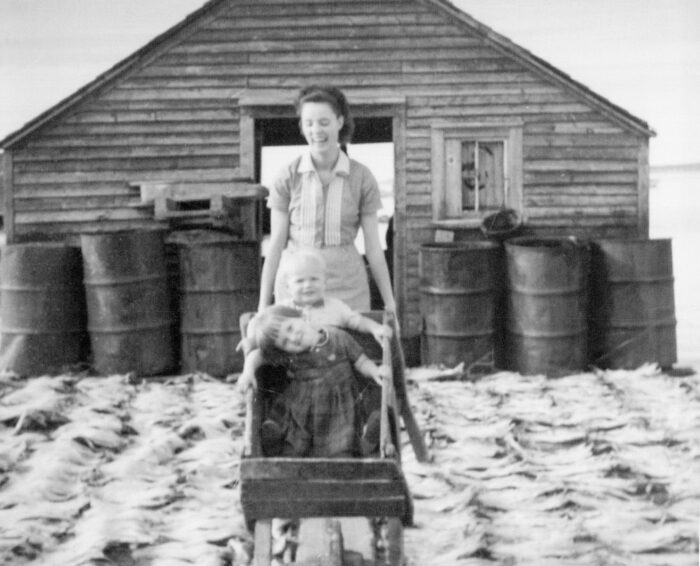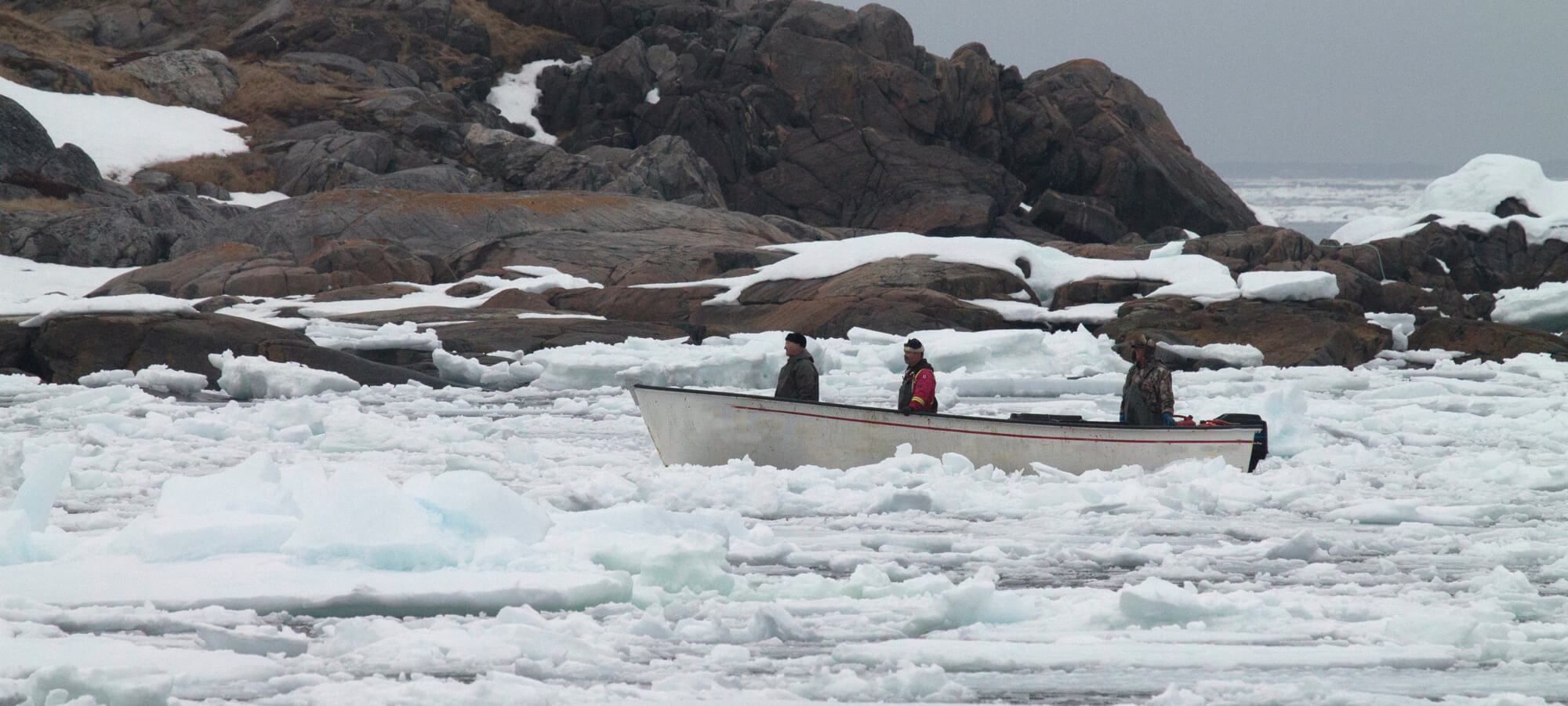Ancestors
Our English and Irish ancestors were self-reliant cod fishing people who made their living on the tumultuous North Atlantic.
Arguably the most important of the species that call Fogo Island’s maritime climate home is North Atlantic cod (Gadus Morhua), which has been the backbone of Fogo Island’s economy and culture for centuries. Our ancestors came for the cod and stayed for the cod: Fogo Islanders were inshore cod fishing people who worked together as families to make their living on the often unforgiving North Atlantic.
Fogo Island is located just outside of Notre Dame Bay, one of the oldest venues of European activity in North America. The unique geography of the Bay and the resources it offered proved attractive to fishermen from Europe, and Fogo Island first appeared on early mariners' and explorers' maps of Newfoundland in the sixteenth century.
The area surrounding Notre Dame Bay, and the rivers which flow into it, encompassed the economic and spiritual heartland of the native Beothuk people. The Beothuk were a hunting and gathering people who came in the wake of the Maritime Archaic and Dorset Eskimo people. Fogo Island was a key summer fishing and hunting station for the Beothuk people, and they developed a system of informal exchange with visiting French, English, and Irish fishers in the neighboring Notre Dame Bay.
As is commonly known among Newfoundlanders and many other Canadians, the Beothuk people were decimated to make way for encroachment and settlement of these lands we know and love. As European settlement increased, the Beothuk were increasingly denied access to vital resources as they competed with European furriers and trappers. The last known Beothuk, Shanawdithit, died of tuberculosis in St. John’s in 1829.
There is no proper or adequate way to atone for the actions of our ancestors, but to do our best to acknowledge what occurred, honour the legacy of those lost, and maintain a profound caring for the land and resources they once cared for. We are humbled by the spirit of those who were before us.
⠀

Fogo Island’s first European settlers were English Protestants from Devon and Dorset and Catholics from Southeast Ireland. They settled in their own isolated but strong communities and supported their families by sealing and fishing. For centuries, Fogo Island was a non-capital-accumulating society: Islanders fished together as families and were fiercely independent and largely disconnected from the outside world. Indeed, Fogo Island had no town council to speak of until the 1970s, and churches were the primary social institutions. Settlers brought with them their respective dialects from Southwest England and Ireland, the remnants of which remain audible to this day in the distinctive accents of Fogo Islanders.
Fogo Island’s geographical isolation led to the development of a society of master builders, recyclers, and innovators. Today’s Fogo Islanders remain entangled with the natural world, constantly devising solutions to the challenges of Island living on the North Atlantic. Following the 1992 moratorium on cod, Fogo Islanders have adapted to the midshore fishery and fish for a greater number of species, including crab, shrimp, and turbot. The fabric of family and community remains tightly woven as contemporary Fogo Islanders continue to identify closely with their history as people of the sea who are deeply sensitive to nature’s gentlest and fiercest gestures.
